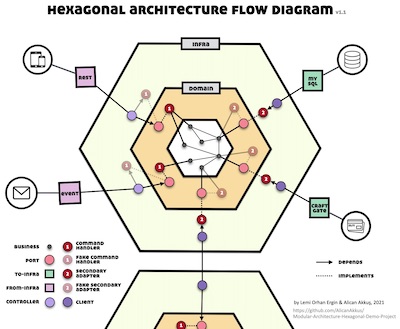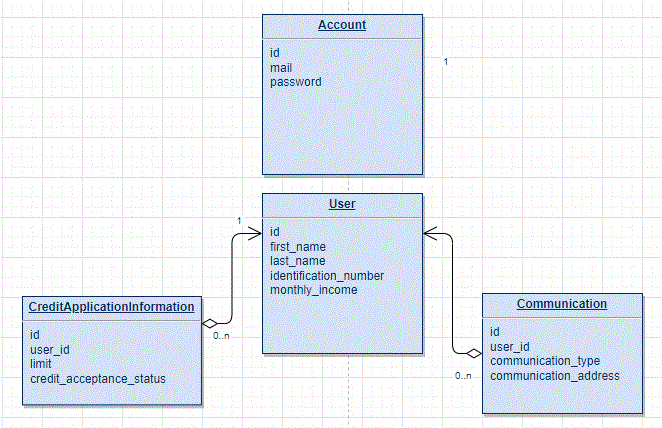- Make sure your computer has docker,java17 and maven installed
- Open your terminal and enter the CreditSystem folder with the cd command
- Run "mvn clean install -U -DskipTests=true"
- Run "docker-compose up"
- Go to "http://localhost:8080/swagger-ui/index.html#/" from browser
- Create a new account with /accounts end point
- Get token by entering the account information you created with /login end point
- Enter token by pressing the Authorize button on the top right, adding Bearer to the head of the value section
- And now you can use all the end-pointes 😊
I want to write clean, sustainable, well-defined boundary context, well-tested domain code and isolate business logic from external concerns. Hexagonal architecture allows us to become domain software, which is a very comfortable way to change technology because it provides a loosely couple environment without the technical details of the project, and it also prepares our monolith-starting project for micro-servicers
The hexagonal architecture was invented by Alistair Cockburn in an attempt to avoid known structural pitfalls in object-oriented software design, such as undesired dependencies between layers and contamination of user interface code with business logic, and published in 2005.
A timeless goal of software engineering has been to separate code that changes frequently from code that is stable.
~ James Coplien / Lean Architecture
We recommend Hexagonal Architecture for those who want to write clean, maintainable, well-defined boundary context, well-tested domain, and decoupling business logic from technical code.
Here is the list of technologies I used for the Credit Application System;
- Spring Boot 2
- Java 17
- Docker
- PostgreSql
- Redis(Used redis at end point /creditapplicationinformations/{identificationnumber})
- Custom Exception Handler
- Lombok
- Swagger UI
- Unit/Integration Tests


